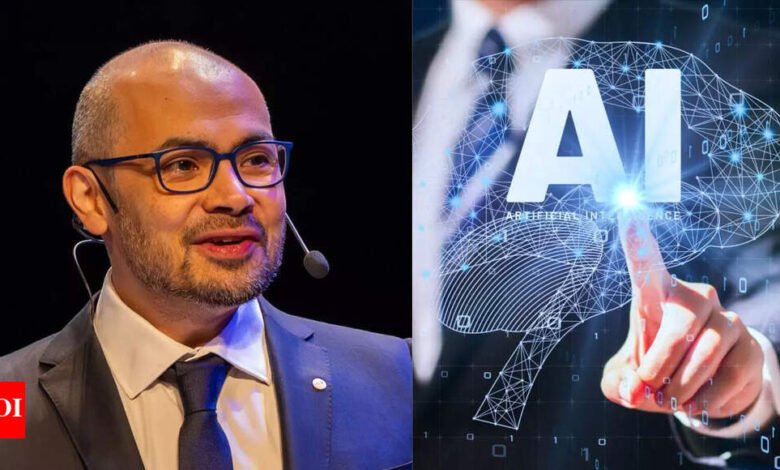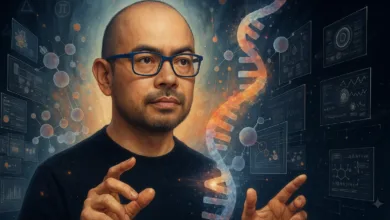DeepMind CEO: AI Slashes Drug Discovery Time, Revolutionizing Medicine

▼ Summary
– AI can dramatically reduce drug discovery timelines from years to months by processing large datasets and identifying promising drug candidates rapidly.
– DeepMind’s AI models streamline drug development by predicting molecular interactions, optimizing designs, and reducing high failure rates in pharmaceutical research.
– This technology promises faster pandemic responses, personalized medicine tailored to individual profiles, and lower development costs for global accessibility.
– AI is being applied to diseases like Alzheimer’s, rare cancers, and genetic conditions, offering new therapeutic possibilities through computational predictions.
– Challenges include the need for rigorous regulatory validation, addressing ethical concerns for safety and equity, and requiring collaboration across scientific disciplines.
The pharmaceutical industry stands on the brink of a monumental shift, with artificial intelligence poised to dramatically shorten drug development timelines and redefine medical innovation. DeepMind CEO Demis Hassabis recently emphasized that AI could reduce a process that traditionally spans over a decade down to just a matter of months. This acceleration isn’t merely about speed, it represents a fundamental change in how researchers identify, test, and validate new treatments, offering hope for faster responses to global health challenges.
Historically, bringing a new drug to market involved painstaking laboratory work, extensive clinical trials, and considerable financial investment, often stretching across ten to fifteen years. Hassabis envisions a near future where advanced AI models compress this timeline significantly. Through DeepMind’s subsidiary, Isomorphic Labs, machine learning systems analyze complex biological data, simulate molecular behavior, and predict how potential drugs might interact with human proteins. These capabilities allow scientists to pinpoint promising compounds in weeks rather than years, optimizing research focus and conserving resources.
A critical hurdle in pharmaceutical development has always been the high rate of failure during later testing phases. Many compounds that show early promise ultimately prove ineffective or unsafe. AI-driven predictive modeling helps minimize these setbacks by forecasting molecular interactions and potential side effects before costly lab experiments begin. The technology can also propose novel chemical structures that might otherwise remain undiscovered, broadening the scope of treatable conditions.
The implications extend far beyond efficiency. Rapid drug discovery enables quicker responses to emerging diseases and pandemics. It also opens the door to personalized medicine, where therapies are tailored to individual genetic profiles and specific disease manifestations. Additionally, reducing development costs could make life-saving treatments more accessible worldwide, particularly in regions where advanced healthcare remains out of reach.
AI is already being applied to some of medicine’s most persistent challenges, including neurodegenerative diseases like Alzheimer’s, rare genetic disorders, and certain cancers. By simulating protein folding and analyzing molecular pathways, researchers gain insights that could lead to breakthroughs in conditions where conventional drug development has historically struggled.
Nevertheless, integrating AI into drug discovery brings its own set of complexities. Regulatory bodies will require rigorous validation of AI-generated predictions to ensure they meet global safety standards. Ethical considerations must also be addressed, particularly around equity and safety in personalized treatment design. Success will depend on collaboration across disciplines, bringing together AI experts, biologists, pharmacologists, and clinicians to translate computational advances into real-world therapies.
While challenges remain, the potential for AI to revolutionize medicine is undeniable. As these tools continue to evolve, they promise not only to accelerate discovery but to expand the very boundaries of what is medically possible.
(Source: Times of India)

